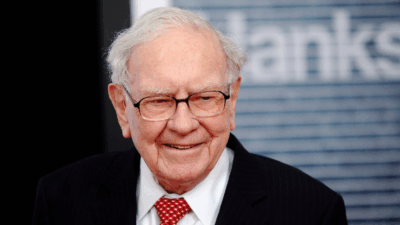Bargain-Hunting Investors Are Bidding Up UK Stocks
UK stocks have been outperforming US stocks on a broad index-based level for the past seven weeks, but this isn’t a case of a UK renaissance.

Sign up for smart news, insights, and analysis on the biggest financial stories of the day.
As the Venture Brothers of Cartoon Network fame put it, what goes down must come up. Underperformance is never the goal in financial markets. But do it long enough, and you might start looking like the best new place to invest.
UK stocks have been outperforming US stocks on a broad index-based level for the past seven weeks, with the FTSE 100 gaining about 9% since March 20, and the S&P 500 only rising 0.9% during that time. But this isn’t exactly a case of a sudden UK economic renaissance.
Been Down So Long
After both the UK and the US economies started to put the global pandemic behind them, their fortunes began to diverge. While the US steadily put up GDP annual growth rate numbers of roughly 2% to 3%, the UK has flatlined, with growth of less than 1% in every quarter since the fourth quarter of 2022, including negative growth in last year’s Q4. That’s a big reason the S&P 500 has risen 36% since the beginning of 2023, versus the FTSE 100’s increase of 13%.
But many investors worry that US stocks are now priced for perfection, and nobody’s perfect:
- The S&P 500 is trading at 20 times expected 12-month earnings, above its 10-year average of 18 times. Plus, many of the big names that had driven US indices higher have had recent reality checks: Tesla (down 33% this year) has had production issues and a serious sales slump; Meta (down 8% in the past month) was punished for future AI expense projections, and Netflix (down 2% in a month) lost favor after a weak subscriber outlook.
- Meanwhile, the FTSE sits at a trailing price-to-earnings ratio of 14, one of the least expensive developed markets in the world, according to the Financial Times, which noted that Deutsche Bank calls the FTSE its “favorite index in Europe” and continues to prefer European stocks to the US.
Slow and Steady: As the FT’s Katie Martin noted, the lack of “exceptional” high flyers, particularly in the tech sector, which propelled US stocks, is now serving UK stocks well, as its middling economy. There’s growing confidence that the next interest rate cut will happen in the UK before the US, which could help close the economic growth gap. Oil prices loom large, too, with any future runups more favorable to the FTSE’s larger exposure to natural resources stocks.











